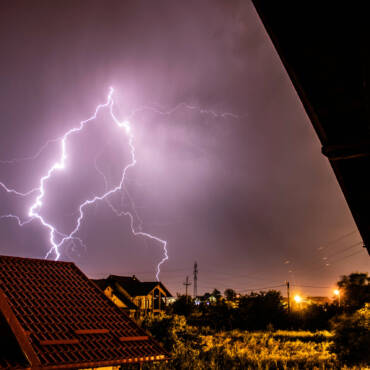As we’ve talked about on our website, there’s not much to worry about when you own a whole house generator, the best emergency power backup for home. In the event of an outage, they turn on automatically and are usually big enough to power an entire house. You can even run them for days or weeks if needed.
Installation costs can range from a few thousand dollars to $10,000 or more for most home standby generators. It’s expensive, but superior standby generators are truly the gold standard. According to several consumer ratings, they’re one of the best investments out there if you’re looking to enhance your property’s emergency preparedness and protect what matters most.
Homeowners say standby generators are better than any other type of generator. That’s because power outages don’t just turn off the lights. They turn off everything, from refrigerators to sump pumps, to just about everything else in your home or on your property. Costly problems can result from this. This doesn’t have to be the case when you own the best emergency power backup for home.
The Best Emergency Power Backup for Home is a Substantial Investment
There’s no doubt about it. A whole house backup generator is a worthwhile investment, but what makes these units the best emergency power backup for home and how long do they last?
You’ll have to consider a few things when determining how long the generator lasts. Backup generators can power the whole house, but portable generators cannot, especially for a long time. During a power outage, a high-caliber whole house generator will keep your whole house running for longer.
Most whole home generators last between 25 and 40 years, with a median shelf life of 30 years. When you think about it, if it costs you several thousands of dollars to buy and install the generator, that’s not all too expensive considering how long it can last.
Unlike superior standby generators, portable generators must be plugged in and out, which makes them more prone to electrical fires. You might be able to use a portable generator for a camping trip or tailgating. However, it won’t be able to power your whole house in an emergency.
If you don’t have enough power for your central air conditioning and heating system in situations of prolonged extreme weather events, or if you or someone in your home relies on large medical equipment to survive, a partial generator simply won’t cut it. In these scenarios, you won’t be benefitting from the best emergency power backup for home.
Also, portable generators have a much smaller fuel capacity and need refueling regularly. During an emergency, their fuel may be in short supply, whereas natural gas and propane are in less demand. You’ll be more prepared for whatever comes your way with a whole house generator.
Getting the Highest Return on Your Investment
Considering their run time and versatility, standby generators are a logical choice for emergency power. Because they’re hardwired and have an automatic transfer switch, they’re usually any homeowner’s best emergency power backup for home.
However, there are some important considerations — including price, warranty, noise level, energy output, load management, and high-temperature shutdowns. Also, running the generator for half an hour weekly while keeping it clear of snow or other seasonal outside debris is part of the proper maintenance you’ll need to work into your weekly routine.
In addition to visual inspections and cleaning the surrounding area, owning a first-rate whole house generator comes with first-rate maintenance. Things like checking the oil level and coolant, checking clamps and wire connections, checking for corrosion or damage to terminals and wiring, and inspecting batteries become top priority. The oil and filter should also be changed annually, and fuel filters, transfer switches, spark plugs, and load tests should also be performed depending on your specific type of generator.
Is the Best Emergency Power Backup for Home Worth It?
Despite the initial cost, paperwork, and planning of installing a whole house generator, most people think they’re worth it since they’re the best emergency power backup for home. What’s the reason for this?
Besides increasing your home’s value, a whole house generator can provide a return on investment that legitimizes — if not outweighs — the cost for many homeowners. This alone makes superior standby generators a good investment.
It’s also worth considering whether you live in an area with frequent power outages. You may not need a quality home backup generator if you rarely or never lose power. Nevertheless, if you suffer from frequent power outages, it might be worth having one. Every time the power goes out, you lose hundreds of dollars’ worth of food that spoils in your fridge or freezer. There’s a lot to think about when it comes to food costs.
Furthermore, if you work from home, you need internet and electricity. Power outages are two good working days where you aren’t making money because of the downtime involved. Having a backup standby generator will solve this problem, which is why it remains the best emergency power backup for home.
Some Other Things to Consider
Think about why you’re buying a high-caliber whole house generator, then add these other important factors to your decision-making process:
- Food that goes bad quickly. If you don’t have power, food in your refrigerator or freezer can spoil in 24 hours. You won’t be able to eat fresh food, and you’ll lose a lot of money as well. As reference, the average households spend anywhere from $800 – $1,200 on groceries each month.
- Pumping sump water. Is there a sump pump in your basement? To prevent flooding in your home, make sure it’s powered. In the event that the water rises above a predetermined level, the pump automatically starts dumping that water into the sewage drain.
- Running a business from home or working from home. Maybe you’re a home business owner or work from home. If this is the case, you’ll need power to work. There will be a delay in your schedule if there’s a power outage. A whole house generator can help you keep your work schedule on track, proving to be the best emergency power backup for home.
- Medical devices that are powered by electricity. It’s possible you’ll need medical equipment that uses electricity. You might need a backup generator in this case. In case there is an outage, you’ll want to make sure you have a backup power source for your critical medical devices.
- Water from a well. If you are a household that uses well water, when you lose power, you will lose water. A quality home backup generator ensures you’ll have running water until the regular power comes back on.
- Electricity outages and local crime possibilities. In some neighborhoods, crime rates rise during a blackout. Your security systems and lights stay on when you have power, helping to keep intruders away.
Best Emergency Power Backup for Home: Size, Kilowatts, and Protection
A whole house generator’s power output is one of the most important factors when shopping for the best emergency power backup for home. Watts are how generators are rated. A 10-kilowatt generator can produce 10,000 watts, so 1,000 watts is 1 kilowatt (Kw). Microwaves take about 1,000 – 1,200 watts to run (1 – 1.2 Kw), whereas light bulbs take 10 – 60 watts depending on the type of bulb.
You’ll need a bigger generator if you’re powering more devices. An average portable generator only produces 2 Kw – 6 Kw, whereas a whole house generator can produce 20 Kw and above.
During power outages, a home backup generator will provide you with a comfortable environment and protect your home. Superior standby generators kick on the moment power is lost, and you won’t have to worry about putting the generator in the right spot or running electrical cords.
There are a lot of calculators on the internet that can help you figure out what size generator you’ll need, but the best way is to talk to someone who installs standby generators themselves. Danley 911 Home Services Electrical has the experience and expertise to help you pick the best emergency power backup for home.
Danley 911 Home Services Electrical
At Danley 911 Home Services Electrical, we assist you throughout the entire process. We can answer any questions you may have about the best emergency power backup for home. Additionally, we can help you prepare for the installation process, obtain permits, inspections, and much more.
We help you optimize and fine-tune your situation so you get the most out of your investment, as well as determine the correct generator size.
We look forward to hearing from you.
Contact us today.


